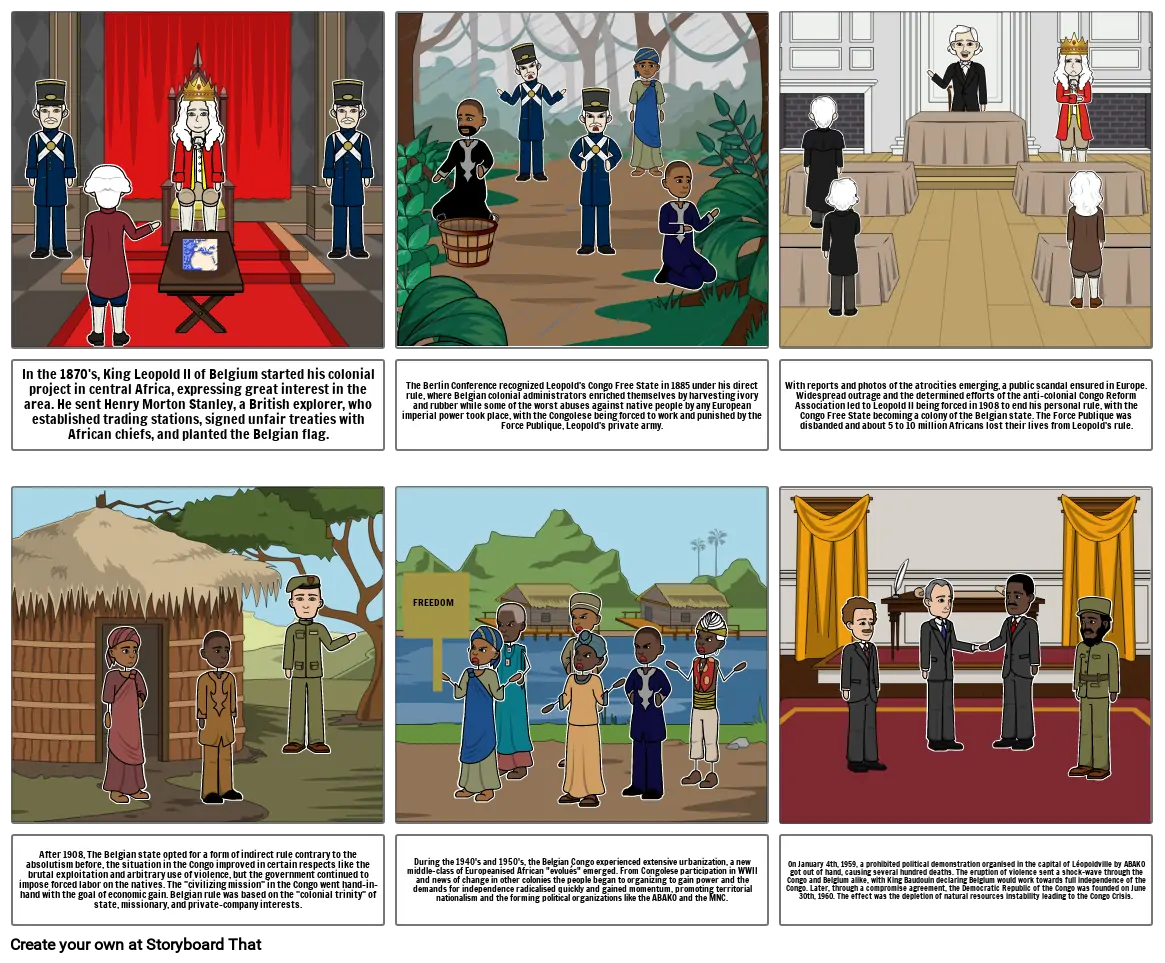
Storyboard Tekst
- In the 1870's, King Leopold II of Belgium started his colonial project in central Africa, expressing great interest in the area. He sent Henry Morton Stanley, a British explorer, who established trading stations, signed unfair treaties with African chiefs, and planted the Belgian flag.
- The Berlin Conference recognized Leopold's Congo Free State in 1885 under his direct rule, where Belgian colonial administrators enriched themselves by harvesting ivory and rubber while some of the worst abuses against native people by any European imperial power took place, with the Congolese being forced to work and punished by the Force Publique, Leopold's private army.
- FREEDOM
- With reports and photos of the atrocities emerging, a public scandal ensured in Europe. Widespread outrage and the determined efforts of the anti-colonial Congo Reform Association led to Leopold II being forced in 1908 to end his personal rule, with the Congo Free State becoming a colony of the Belgian state. The Force Publique was disbanded and about 5 to 10 million Africans lost their lives from Leopold's rule.
- After 1908, The Belgian state opted for a form of indirect rule contrary to the absolutism before, the situation in the Congo improved in certain respects like the brutal exploitation and arbitrary use of violence, but the government continued to impose forced labor on the natives. The "civilizing mission" in the Congo went hand-in-hand with the goal of economic gain. Belgian rule was based on the "colonial trinity" of state, missionary, and private-company interests.
- During the 1940's and 1950's, the Belgian Congo experienced extensive urbanization, a new middle-class of Europeanised African "evolués" emerged. From Congolese participation in WWII and news of change in other colonies the people began to organizing to gain power and the demands for independence radicalised quickly and gained momentum, promoting territorial nationalism and the forming political organizations like the ABAKO and the MNC.
- On January 4th, 1959, a prohibited political demonstration organised in the capital of Léopoldville by ABAKO got out of hand, causing several hundred deaths. The eruption of violence sent a shock-wave through the Congo and Belgium alike, with King Baudouin declaring Belgium would work towards full independence of the Congo. Later, through a compromise agreement, the Democratic Republic of the Congo was founded on June 30th, 1960. The effect was the depletion of natural resources instability leading to the Congo Crisis.
Over 30 millioner Storyboards oprettet

